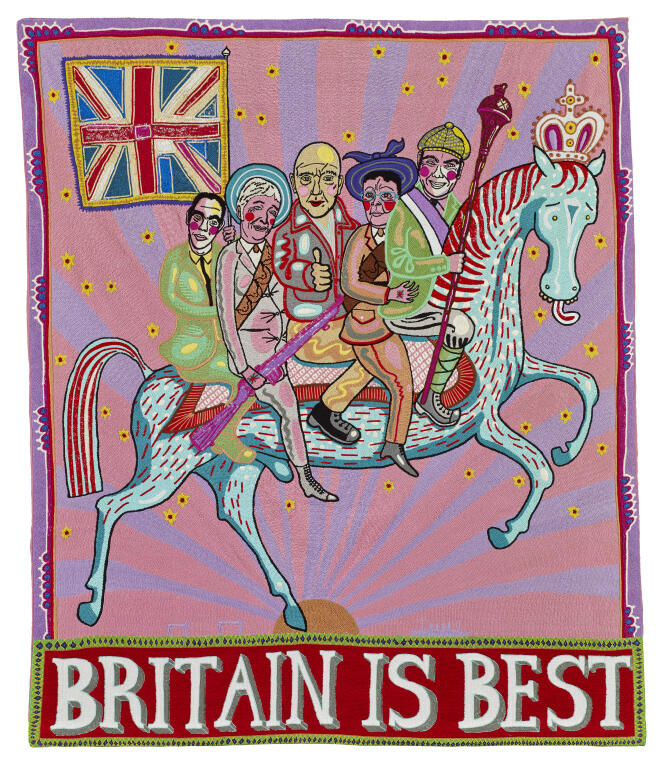A window with windows painted midnight blue recalls the gesture of inhabitants of Arab countries who wanted to escape air raids during the Six-Day War. This work by Lebanese Rayyane Tabet was created a few months ago. For visitors who notice it on the Sfeir-Semler gallery stand in Frieze, the echo with the abominable Israeli-Palestinian news is more than disturbing.
The 20e edition of the London fair opened in full trauma, on October 11. The massacres perpetrated by Hamas in Israel have been added to the chronicle of the effects of inflation and the rise in interest rates weighing on wealthy collectors, accustomed to borrowing for free to invest in art. To further dampen the morale of gallery owners, the results of auctions in Hong Kong were mixed to say the least, testifying to an undeniable cooling off on the art market. In the very long VIP line, however, where many Asians crowded together, the sad news was hardly at the center of the conversations.
As if nothing had happened, several stands made sold out from the opening. The big galleries because they had taken care to pre-sell their selection. Gagosian, for example, knew that he would not repackage the latest floral paintings by the stainless Damien Hirst, sold for between 450,000 and 900,000 pounds sterling (between 522,000 and more than 1 million euros). Other gallery owners, who arrived with their concerns, showed their relief. “It worked much better than we feared”recognizes the Austrian Thaddaeus Ropac, who, to his great astonishment, got rid of his most cherished works.
Rivalry between capitals
Despite the apparent resilience, anxiety remains and goes beyond situational issues. Because if Brexit has reshuffled the cards, its effect on the art world is difficult to measure. The return of customs barriers has not, to date, led to the predicted cataclysm. “Britain is best”even trumpets a tapestry by the very caustic Grayson Perry, hung in Frieze by the Victoria Miro gallery. “Brexit is a disaster in many ways, but, honestly, it has no impact on our business”assures Mathieu Paris, one of the directors of the White Cube gallery, recalling that, “After Covid-19, many Americans and people from Hong Kong chose to come and live in London.”
Based both in Paris and London, Samia Saouma, director of the German gallery Max Hetzler, says nothing else: “We never thought of questioning our gallery in London. There are not, here, the Pinaults and Arnaults, who fantasize the whole world, but buyers from all over the world. It is a much more cosmopolitan city than Paris. »
You have 45.31% of this article left to read. The rest is reserved for subscribers.
